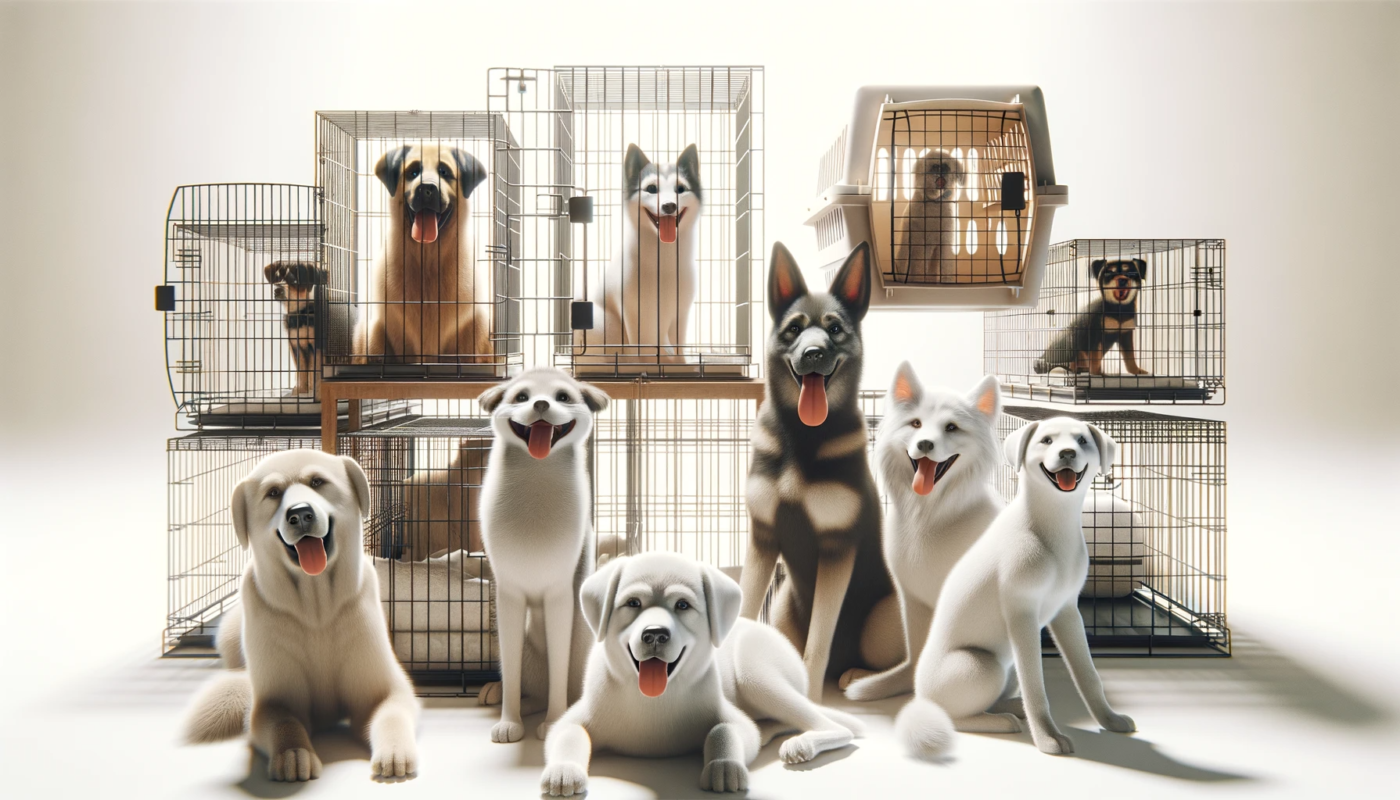
Effective Crate Sizes for Successful Puppy Training
Is the Crate Size Really That Important for Puppy Training?
When it comes to crate training your new furry friend, choosing the right crate size is crucial for their comfort and success. A crate that is too small can make your puppy feel cramped and anxious, while a crate that is too large may not provide the sense of security they need. So, how do you determine the best crate size for your puppy? Let’s break it down for you.
Find products like these on Amazon!
Factors to Consider When Choosing the Right Crate Size
Before you rush out and purchase a crate for your puppy, there are a few key factors you should take into consideration to ensure you select the perfect size.
Breed and Size of Your Puppy
The breed and size of your puppy play a significant role in determining the appropriate crate size. Larger breeds will obviously require larger crates, while smaller breeds can make do with smaller ones. Take into account your puppy’s expected adult size when making your decision.
Growth Rate of Your Puppy
Puppies grow at different rates, with some reaching their full size within a few months and others taking up to a year or more. It’s essential to factor in your puppy’s growth rate when choosing a crate size to ensure it will accommodate them as they grow.
Comfort and Security
Your puppy’s crate should be a safe and comfortable space where they can relax and feel secure. A crate that is too large may not provide the cozy den-like environment that dogs naturally seek, while a crate that is too small can lead to discomfort.
Understanding the Different Sizes of Dog Crates
Dog crates come in a variety of sizes to cater to different breeds and sizes of dogs. Understanding these sizes can help you make an informed decision when selecting a crate for your puppy.
Common Sizes of Dog Crates
Dog crates are typically categorized into three main sizes: small, medium, and large. Here’s a general guideline to help you determine which size crate is best suited for your puppy based on their expected adult size.
| Size | Dog Breed Examples |
|---|---|
| Small | Chihuahua, Yorkshire Terrier, Dachshund |
| Medium | Beagle, Bulldog, Australian Shepherd |
| Large | Labrador Retriever, Golden Retriever, German Shepherd |
Size Recommendations for Different Dog Breeds
- Small Breeds (Chihuahua, Yorkshire Terrier): A small crate measuring around 24″L x 18″W x 20″H should suffice for these tiny breeds.
- Medium Breeds (Beagle, Bulldog): Opt for a medium-sized crate around 30″L x 19″W x 21″H to accommodate medium-sized breeds comfortably.
- Large Breeds (Labrador Retriever, Golden Retriever): For larger breeds, a crate measuring approximately 36″L x 23″W x 25″H is recommended to provide ample space for growth.
Tips for Choosing the Right Crate Size
Now that you understand the importance of crate size and the different options available, here are some tips to help you choose the right crate size for your puppy.

This image is property of pixabay.com.
Find products like these on Amazon!
Measure Your Puppy
Before purchasing a crate, take accurate measurements of your puppy while they are standing and lying down. This will give you a better idea of the space they need to move around comfortably.
Consider Your Puppy’s Behavior
Take into account your puppy’s behavior when deciding on crate size. If they tend to be more active or restless, a larger crate that allows for movement and stretching may be more suitable.

This image is property of pixabay.com.
Allow Room for Growth
Choose a crate size that will accommodate your puppy’s growth over time. Consider purchasing a crate with a divider that can be adjusted as your puppy grows to prevent them from having too much space initially.
Consult with a Veterinarian or Trainer
If you’re uncertain about the appropriate crate size for your puppy, don’t hesitate to consult with a veterinarian or professional dog trainer. They can provide expert guidance based on your puppy’s specific needs.
Crate Training Tips for Success
Now that you’ve selected the right crate size for your puppy, it’s time to embark on the crate training journey. Here are some tips to help make the process smooth and successful.
Introduce the Crate Gradually
Ease your puppy into their crate by introducing it gradually and positively. Place their favorite toys or treats inside the crate to create a positive association with the space.
Practice Short Intervals
Start by having your puppy spend short intervals of time in the crate and gradually increase the duration. This will help them get used to being confined without feeling anxious or stressed.
Use Positive Reinforcement
Reward your puppy with treats, praise, or affection whenever they enter the crate voluntarily. Positive reinforcement will encourage them to view the crate as a safe and comfortable space.
Never Use the Crate as Punishment
Avoid using the crate as a form of punishment, as this can create negative associations with the space. The crate should be a place of rest and relaxation, not a place for discipline.
Create a Comfortable Environment
Ensure that the crate is equipped with soft bedding, toys, and water to create a comfortable and inviting environment for your puppy. A cozy crate will make them more likely to view it as their den.
Final Thoughts on Crate Training Success
Choosing the right crate size is the foundation for successful crate training with your puppy. By considering their breed, size, growth rate, and comfort needs, you can provide them with a safe and secure space to call their own. Remember to be patient, consistent, and positive throughout the crate training process, and you’ll soon see your puppy embrace their crate as a peaceful retreat. Happy training!
Find products like these on Amazon!



-
-
7 days
Tagged Choosing, dog crate, Guide, Size